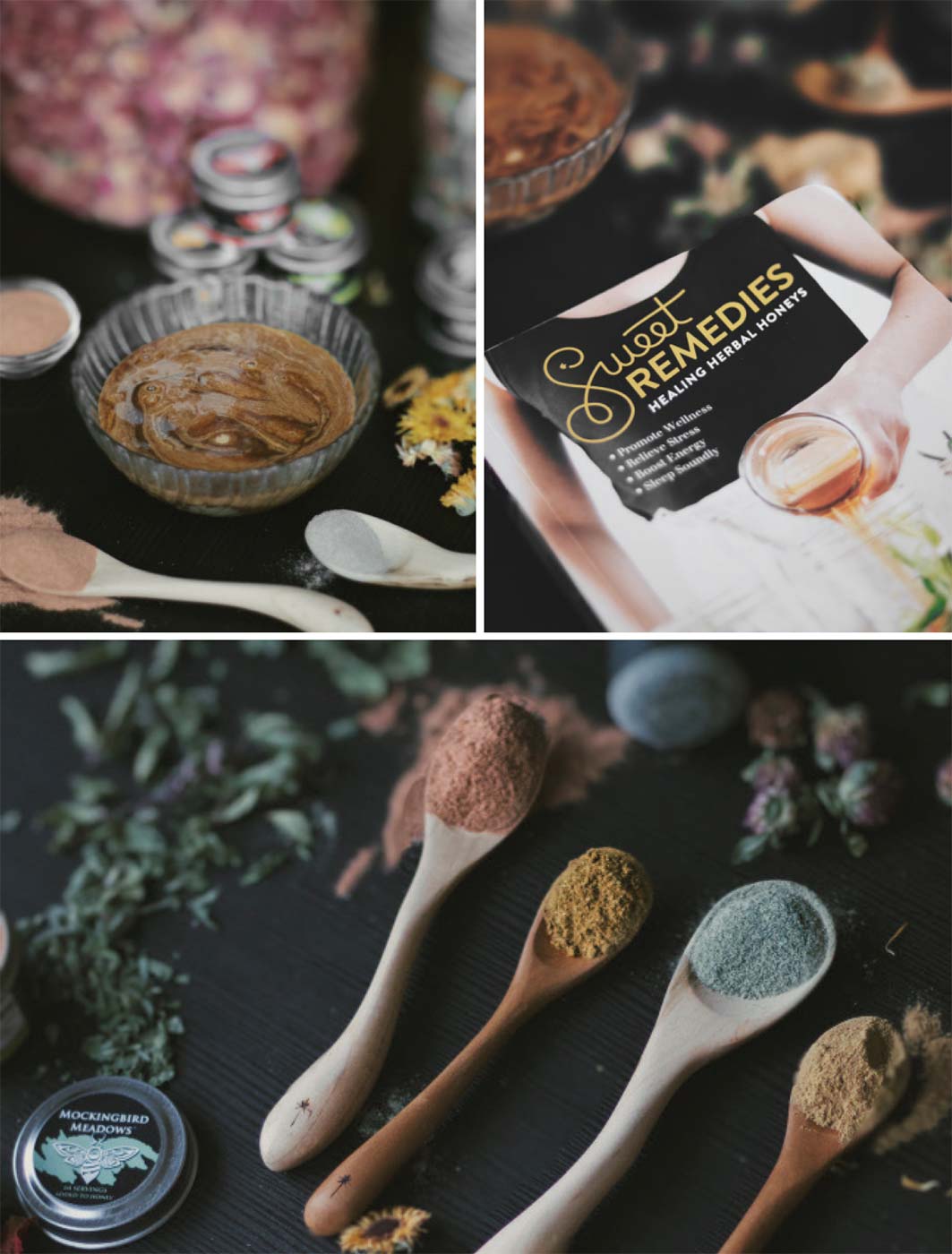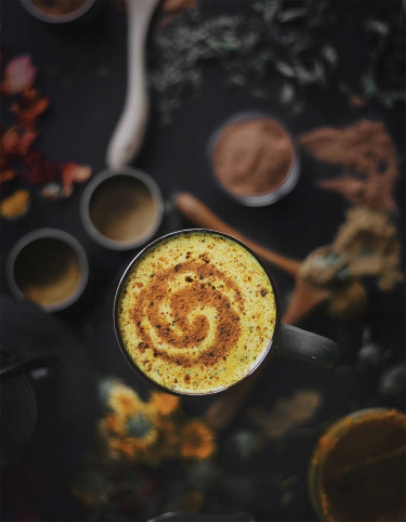Eat Your Medicine
Just a little sugar can make medicine easier to take, but what if the sweetener is the medicine?
Ethnobotanist, herbalist and beekeeper Dawn Combs hopes to open readers’ eyes to the healing qualities of honey with her latest book, Sweet Remedies: Healing Herbal Honeys.
At Mockingbird Meadows, the Marysville farm she shares with her husband and two children, Combs has kept bees for years and uses their honey to develop recipes to aid everything from colds and upset tummies to urinary tract infections and migraines. She has recipes aimed at improving brain health and memory function, and the book even includes an aphrodisiac recipe called “Desire Honey Spread.”
Combs wants readers to understand honey in a new way. While honey has long been known to have beneficial health properties, including anti-inflammatory, antioxidant and antimicrobial qualities, most of us see it only as a natural sugar substitute.
“We’ve oversimplified honey,” she said.
Because sweet though it may be, honey has a much bigger role to play.
Using honey in combination with herbs and other plants does more than just create a palatable vehicle for less-than-tasty medicinal herbs. The preparations that blend honey and other ingredients can actually amplify the healthful benefits of each, Combs said.
HEALTHY PARTNERS
This led her to explore traditional medicine honey mixtures including electuaries (mixtures of raw honey with fresh or dried herbs or other plant material), infused honey (fresh herbs and spices steeped in raw honey), tinctured honey (infused honey with the addition of alcohol), oxymels (a blend of honey and vinegar mixed with herbs), pills (powdered herbs or spices combined with honey to make a dough that can be cut into pea-sized pills) and fermented honey (honey with herbs and spices that has been allowed to ferment).
She developed the recipes in the book by experimentation, often working up custom formulas to address the needs of family members or clients. Folklore and honey remedies from other cultures gave her some clues.
“There was no roadmap in terms of how much herbs to put in the honey,” she said. “I was feeling my way along as I went.”

NEVER HEAT HONEY
Only raw honey has the useful enzymes and other beneficial health properties suitable for her medicinal preparations, Combs said. Heating honey destroys these.
More than that, she warned that heating honey can actually make honey bad for you. Heating fructose, such as honey, creates compounds that may be toxic.
While stirring honey into hot tea or oatmeal does not warm it enough to create this detrimental effect, honey should never be heated to more than 104°F, she warned.
To warm honey that has crystallized, you should soak your honey jar in warm water until it re-liquifies, Combs said. Crystallization, by the way, is a sign that you got good, raw honey.
FOOD AND MEDICINE
When Combs first began developing honey blends, her young children who had balked at less tasty herbal supplements happily ate her new sweet concoctions.
For Combs, this brought to mind the famous quote attributed to the ancient Greek physician Hippocrates: “Let food be thy medicine and medicine be thy food.”
“While I want people to take honey seriously as medicine, I also want them to see it as food,” she said.
Sweet Remedies: Healing Herbal Honeys
By Dawn Combs
(Storey Publishing, 2019)




